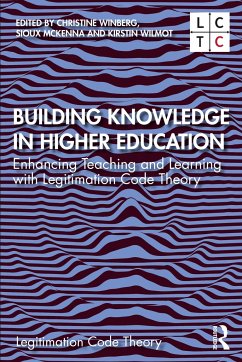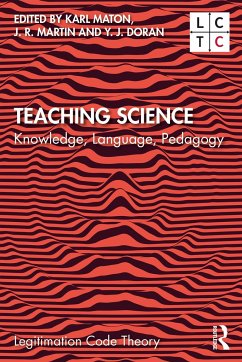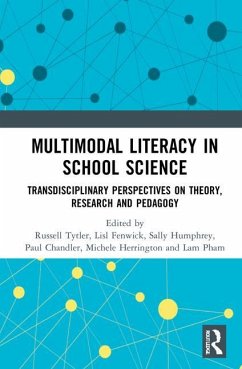
Enhancing Science Education
Exploring Knowledge Practices with Legitimation Code Theory
Herausgegeben: Blackie, Margaret A.L.; Adendorff, Hanelie; Mouton, Marnel
Versandkostenfrei!
Versandfertig in 6-10 Tagen
40,99 €
inkl. MwSt.

PAYBACK Punkte
20 °P sammeln!
This book helps meet an urgent need for theorized, accessible and discipline-sensitive publications to assist science, technology, engineering and mathematics educators. The book introduces Legitimation Code Theory (LCT) and demonstrates how it can be used to improve teaching and learning in tertiary courses across the sciences. LCT provides a suite of tools which science educators can employ in order to help their students grasp difficult and dense concepts. The chapters cover a broad range of subjects, including biology, physics, chemistry and mathematics, as well as different curriculum, pe...
This book helps meet an urgent need for theorized, accessible and discipline-sensitive publications to assist science, technology, engineering and mathematics educators. The book introduces Legitimation Code Theory (LCT) and demonstrates how it can be used to improve teaching and learning in tertiary courses across the sciences. LCT provides a suite of tools which science educators can employ in order to help their students grasp difficult and dense concepts. The chapters cover a broad range of subjects, including biology, physics, chemistry and mathematics, as well as different curriculum, pedagogy and assessment practices. This is a crucial resource for any science educator who wants to better understand and improve their teaching.














